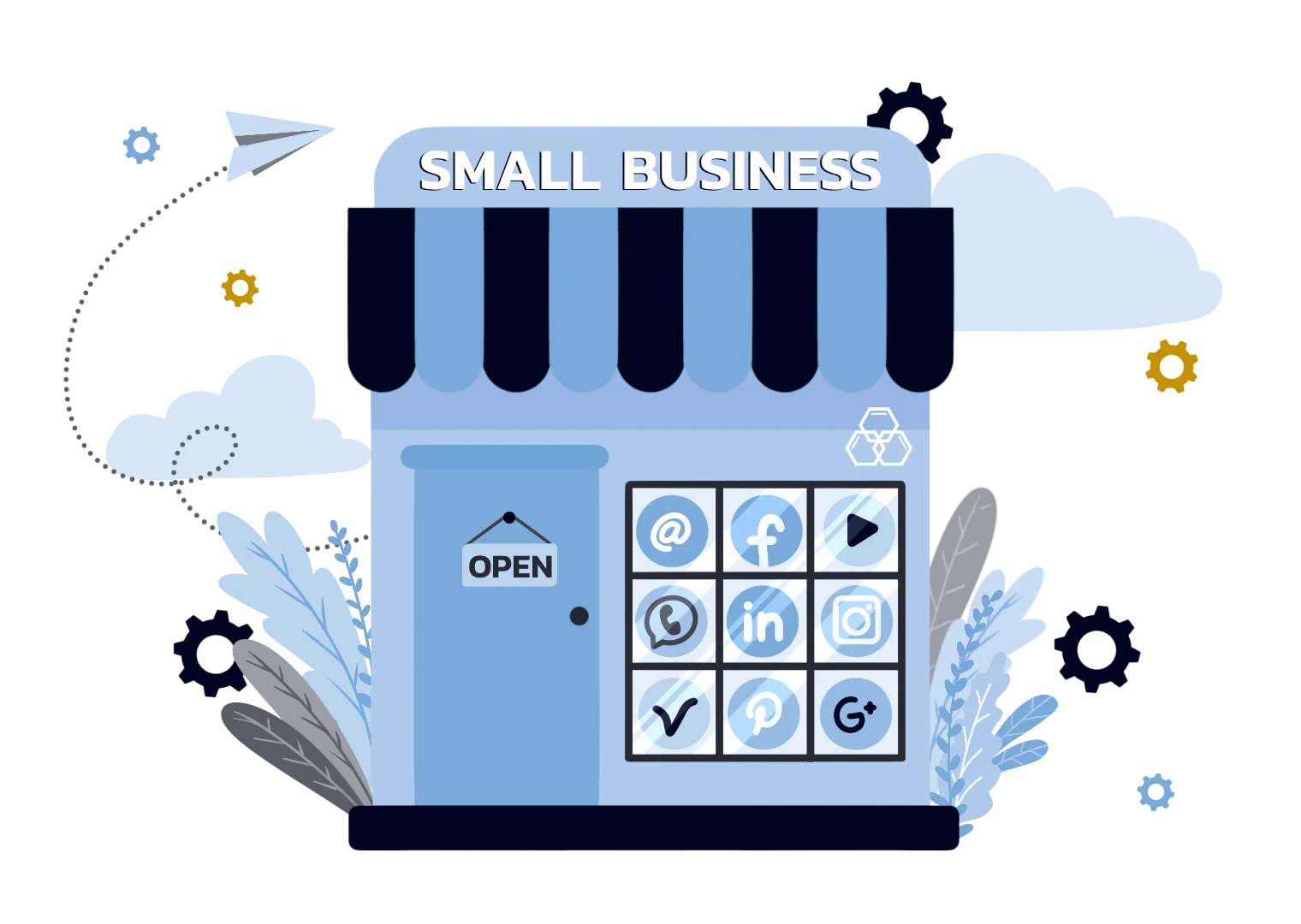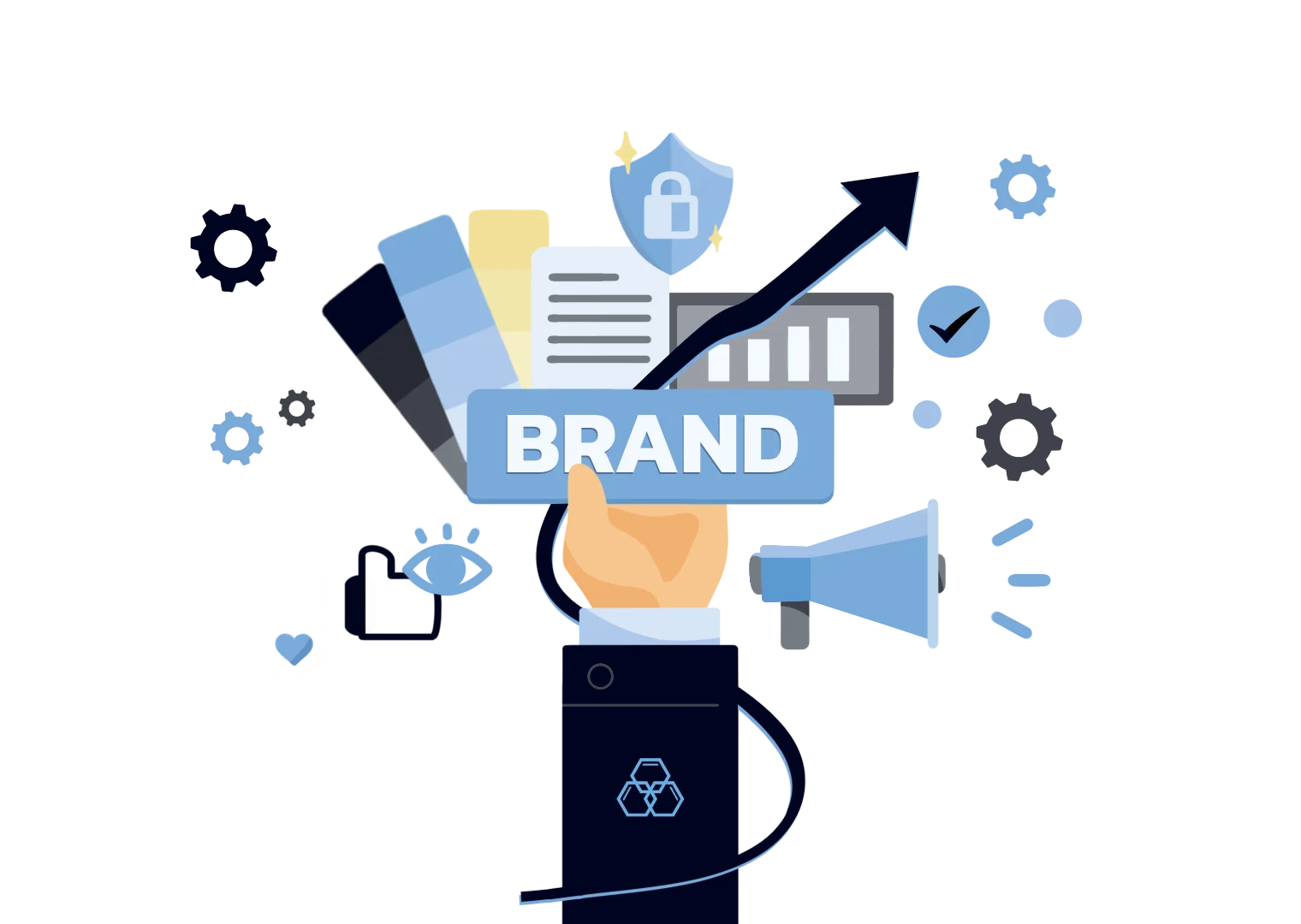A website has become a prerequisite for building a successful digital brand. It's your online storefront, brand ambassador, and crucial hub for all your digital marketing efforts. A well-designed website attracts customers, builds trust, and converts interest into sales. But how do you get people to visit your website in the first place?
Understanding traffic sources is key.
What is Direct Traffic?
Direct traffic refers to website visitors who arrive without a clear referral source. Analytics tools may not be able to pinpoint exactly where they are found.
Here's a breakdown of what might be driving this direct traffic:

- Loyal visitors: These visitors know your URL by heart and type it directly into their browser. They're familiar with your brand and likely returning for a specific reason.
- Bookmarked visitors: If someone bookmarked your site for easy access, their visit will show up as direct traffic. This shows that they value your content and want to stay informed.
- Clicking from offline sources: If you put your website address in a flyer, business card, or radio ad, visitors clicking through from these sources will be counted as direct traffic.
- Email marketing: Clicking a link within an email (without UTM parameters) won't be tracked as a referral from your email platform. These clicks would fall under direct traffic.
- Secure connection switch: This is a technical quirk. Switching from a secure (HTTPS) webpage to a non-secure (HTTP) one can disrupt how referrer data is passed, leading to a direct traffic classification.
What is Organic Traffic?

When you search for something and click on a result that isn’t an ad, visiting that website is considered organic search traffic. Site analytics tools like Google Analytics, Ahrefs, and Hotjar are commonly used to track organic traffic. Visitors use keywords or phrases related to brands, products, or industries, and your website pops up as a relevant answer.
Search engine optimization is the key to attracting more organic traffic to your website. Optimizing your website content with relevant keywords and building a strong online presence can increase your website's ranking in search results.
Why is Tracking Online Traffic Important?
Tracking website traffic is always essential for any digital marketer, and here's why:
Measure Success
Website traffic is a key indicator of your online marketing performance, whether you are doing well or not. It shows how many people visit your website and what they do there. Knowing how much traffic you get gives you insights into how successful your marketing campaigns and website content are.
For example, you launch a new product in multiple channels and see website traffic spikes after a launch from a video ad compared to social media posts. This data helps give you insight on how effective video ads are and helps you make informed decisions, such as narrowing your focus, which increases your ROI and saves ad cost.
Understand Your Audience
Analyzing website traffic provides valuable insights into your target audience. Traffic helps you learn about their demographics, interests, and online behavior. For instance, a sudden increase in traffic from a youthful and casual tech blog helps you discover that most of your visitors might be young adults interested in technology.
This information helps you tailor your content and marketing messages to resonate better with your audience.
Identify Opportunities
Looking at website traffic patterns helps uncover potential growth opportunities. Using site tracking tools like Hotjar, you can identify which pages or content pieces are most popular. Moreover, it helps you decide where to focus direct or organic traffic by creating similar content or expanding on those topics.
Additionally, you might discover new markets or customer segments to target. For example, if you notice a surge in traffic from a particular geographic location, you could explore opportunities to expand your business there.
Optimize Marketing Campaigns
Tracking website traffic allows you to measure the effectiveness of your marketing campaigns. You can see which campaigns are driving the most traffic and conversions.
This data helps you allocate your marketing budget wisely and focus on the channels that deliver the best results. For instance, if social media campaigns generate more traffic than email marketing, you can adjust your budget to invest more in social media.
Identify Issues
Monitoring website traffic can help you identify potential problems. A sudden drop in traffic could indicate technical issues, algorithm changes, or ineffective content. By tracking website traffic regularly, you can quickly detect and address these issues before they significantly impact your business.
Additionally, analyzing traffic patterns can help you identify user experience problems that may hinder conversions, such as slow loading times or confusing navigation.
Differences Between Organic vs Direct Traffic
Here are the key differences between organic and direct traffic:
Source of Traffic
- Organic Traffic: Visitors arrive through search engine results pages, or SERPs, after conducting a search related to your business, products, or services.
- Direct Traffic: Visitors access your website by directly typing the URL into the browser address bar, using a bookmark, or clicking a link from an offline source (e.g., business card, flyer).
User Intent
- Organic Traffic: Visitors often have a specific search intent, indicating they actively seek information or solutions related to their query.
- Direct Traffic: Visitors may have a specific purpose (e.g., returning customers, loyal fans) or might be discovering the website for the first time. Their intent can vary widely.

Acquisition Method
- Organic Traffic: Requires strategic SEO efforts, including keyword optimization, content creation, and link building to improve search engine rankings.
- Direct Traffic: Often influenced by brand awareness, offline marketing, and email marketing campaigns that encourage direct website visits.

Measurement and Analysis
- Organic Traffic: This can be tracked and analyzed using keywords, search engine rankings, and click-through rates to understand visitor behavior and optimize SEO strategies.
- Direct Traffic: Typically tracked as a single category in analytics, providing limited insights into visitor behavior and motivations.

Control and Influence
- Organic Traffic: While SEO practices can influence organic rankings, you have limited direct control over search engine algorithms.
- Direct Traffic: You have more direct influence over direct traffic through branding, offline promotions, and email marketing campaigns.
Why Should You Focus More on Organic Traffic?
Focusing to increase organic traffic often yields more significant long-term benefits for your site and brand. Here's why:

1. Cost-Effectiveness
Organic traffic represents a long-term investment with potentially huge returns. Unlike paid advertising, which requires an ongoing financial commitment, search engine optimization efforts yield results that drive traffic even after completing the initial work.
Once you've established a strong organic presence, you'll enjoy a steady stream of visitors without incurring additional costs. This makes organic traffic a highly cost-effective channel for acquiring customers and generating revenue.

2. Higher Quality Leads
Organic traffic often delivers higher-quality leads compared to other channels. When users search for specific keywords or phrases related to your products or services, they actively seek solutions to their problems.
This targeted intent makes them more likely to convert into customers. In contrast, visitors from other sources might be less focused and have a lower conversion potential.

3. Increased Brand Authority and Credibility
Ranking high in search engine results for relevant keywords indicates your brand's authority and credibility. Users who see your website consistently appearing at the top of search results are likelier to perceive your business as a trusted and knowledgeable resource.
This enhanced credibility can significantly impact purchasing decisions and customer loyalty.
4. Improved Website Visibility
Organic traffic is crucial in expanding your website's visibility and reach. By optimizing your content and technical elements for search engines, you can attract visitors from a wider audience beyond your existing customer base.
This increased visibility can lead to new customer acquisition, brand awareness, and overall business growth. Additionally, a strong organic presence can help you outrank competitors, giving you a competitive edge in the marketplace.

5. Measurable and Optimizable
Organic traffic offers valuable data and insights that can be used to refine your marketing strategies. By tracking keywords, search engine rankings, and user behavior, you can identify opportunities for improvement and make data-driven decisions.
This allows you to optimize your website continuously and content to attract more qualified visitors and increase conversions. In contrast, direct traffic provides limited data, making it more challenging to measure and optimize.
Final Thoughts
Focus on SEO and content marketing strategies to boost direct and organic traffic, enhance your website's visibility, attract targeted visitors, and build a strong online presence. Marketers always see organic traffic as a long-term investment that yields sustainable results, so it should be something you should think about when building a website.
Need help in building a digital brand organically? Let us know how Evolv can help you!
You can also check out our blog page and be updated for the latest insights on building a brand that competes with an evolving online market.







